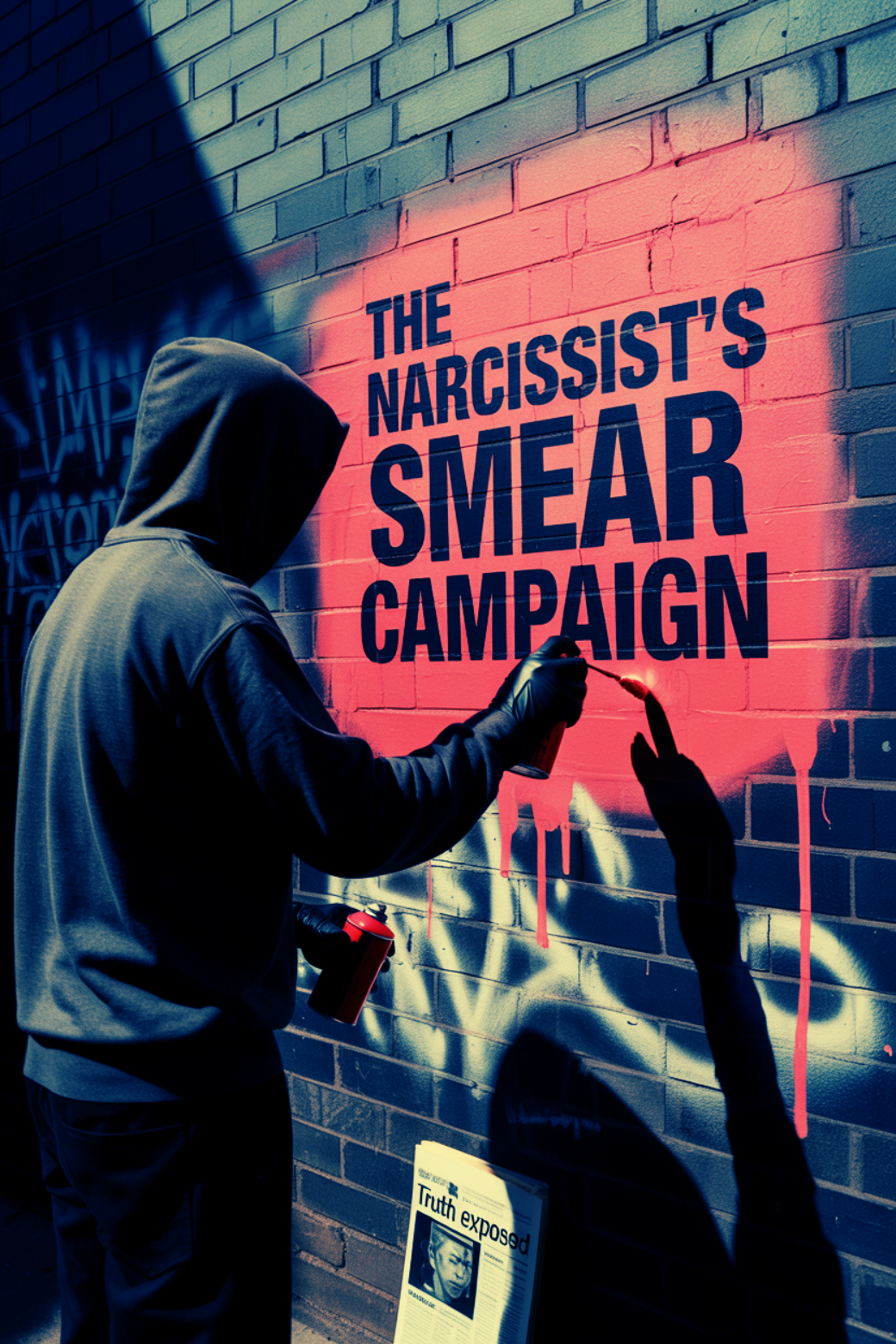Now Reading: The Silent Treatment: What It Really Means & How to Respond
- 01
The Silent Treatment: What It Really Means & How to Respond

The Silent Treatment: What It Really Means & How to Respond
Ever Been Shut Out with Zero Explanation, Left Feeling Helpless and Confused?
They stop answering your calls, ignore your texts, and act like you don’t exist. You might rack your brain thinking:
- “What did I do wrong?”
- “Why won’t they just talk to me?”
- “How can someone who claimed to care about me suddenly go silent?”
Spoiler: The silent treatment is a power play—a psychological manipulation tactic narcissists (and other toxic individuals) use to exert control, inflict emotional distress, and avoid accountability.
1. Defining the Silent Treatment
🤐 “No Contact” vs. “Silent Treatment”
Silent treatment involves a person withholding communication without explanation, deliberately leaving you in the dark about what went wrong. This differs from a healthy boundary such as going “no contact” for self-protection, which is direct and clearly stated.
- Manipulative Silence: Narcissists use it to punish, instill fear, or coerce an apology from you.
- Lack of Closure: You’re left guessing, anxiously trying to figure out how to fix the situation.
Why It Feels So Painful
Humans are inherently social. Being ignored can register as a form of social rejection, triggering the same brain regions that process physical pain (according to research in Psychological Science).
😶 The silent treatment is like a wall—they erect it to make you feel invisible and desperate for their acknowledgment.
2. Why Narcissists Use Silence as a Weapon
🔇 “It’s Not Just Avoidance—It’s Domination.”
Narcissists crave power in relationships. By going silent:
- They Shift Control: You’re the one left pursuing them, trying to mend fences, giving them the upper hand.
- They Dodge Accountability: Instead of addressing your concerns, they disappear—no conflict resolution needed.
- They Inflict Emotional Pain: Watching you spiral in confusion or anxiety feeds their sense of importance.
Fear of Confrontation or Vulnerability
On a deeper level, some narcissists can’t handle criticism or conflict resolution because it demands self-reflection. Silence is the ultimate escape hatch—they avoid admitting faults by simply not engaging.
Statistic: A Journal of Interpersonal Relationships study found that 68% of individuals experiencing narcissistic abuse reported the silent treatment as a top stressor, often more distressing than overt aggression.
3. The Emotional & Psychological Toll
😢 “I’m Left in Limbo, Blaming Myself.”
Victims of the silent treatment often describe feeling:
- Anxious: Trying to figure out what you did wrong.
- Guilty: Wondering if you truly deserve this punishment.
- Rejected: The absence of communication can feel like a statement: “You’re not worth even a word.”
- Obsessed: You might constantly refresh your phone, re-read old messages, or plan ways to “win them back.”
Why It’s So Effective
Narcissists know silence stings more than yelling or insults sometimes. It robs you of any response or closure. You become fixated on regaining their attention, inadvertently reinforcing their dominance.
💔 The pain of being ignored can be as intense as physical heartbreak, leaving deep emotional scars.
4. How It Differs from “Cooling Off”
⏳ “Isn’t it normal to take space after a fight?”
Yes, healthy conflict may involve taking a pause to calm down. But there’s a key difference:
- Cooling Off: “I need a day to process my feelings. Let’s talk tomorrow.” (Clearly stated boundary.)
- Silent Treatment: Suddenly blocked, no explanation, no end date—pure uncertainty.
Healthy vs. Toxic Silence
- Healthy Silence: Time-limited, purpose is self-regulation or mutual respect.
- Toxic Silence: Purpose is punishment, control, or emotional harm.
Comparison: ⏰ If “cooling off” has a set timer and mutual understanding, the silent treatment is an open-ended void designed to keep you anxious.
5. Real-Life Scenarios (Romantic, Family, Boss, Co-worker)
❤️ Romantic Partner
They don’t like your stance in an argument, so they abruptly stop responding to messages. Days pass with no contact, yet they’re active on social media—liking posts, posting stories—showing they’re very much alive, just not speaking to you.
🏠 Family Member
A sibling or parent “goes dark” after you disagree with them. Family gatherings become tense; they won’t speak to you in person, and if you attempt conversation, they roll their eyes or walk away.
💼 Boss
Your manager gives you the silent treatment if you question a policy. Suddenly, you’re excluded from emails, meetings, or decisions, leaving you isolated and guessing if your job is on the line.
👥 Co-worker
They block you from shared projects or Slack channels after a minor disagreement, effectively freezing you out. If you approach them, they pretend you’re invisible—no direct confrontation, just stone-cold disregard.
🤯 Each scenario fosters confusion and emotional turmoil, a hallmark of narcissistic control.
6. Typical Silent Treatment Cycle
🔄 “It’s Not Random; It’s a Predictable Sequence.”
- Trigger: You question them, criticize them, or do something they dislike.
- Withdrawal: Suddenly, they vanish—stop replying, block you, or ghost you.
- Reaction: You panic, worry, blame yourself, and attempt to reconcile.
- Reappearance: They may come back once they feel you’ve “learned your lesson” or if they crave more attention.
- Reset: The cycle repeats whenever they feel threatened or need to reassert dominance.
During withdrawal, you might send multiple texts, apologize profusely—even if you’re not sure what you did. This fuels their sense of power.
7. The IMC Method™: Breaking the Silence Trap
🛡️ “How Do I Protect My Sanity and Regain Control?”
IMC stands for Identify, Minimize, and Control—a strategic approach to recognizing and countering manipulative behaviors like the silent treatment.
I – Identify
- Spot the Pattern: Recognize that their sudden silence is intentional and manipulative.
- Acknowledge Your Feelings: It’s normal to feel anxious or rejected—don’t dismiss your emotional pain.
- Record Behaviors: Note dates, context, and any preceding conflicts; this helps you see the cycle.
M – Minimize
- Limit Emotional Overreach: If they want you to beg for their attention, hold back—avoid sending repeated apologetic messages.
- Redirect Focus: Pour your energy into self-care, hobbies, or supportive relationships. Starve the narcissist of the reaction they crave.
- Set a Time Boundary: If you must communicate (co-parenting or work), give them a reasonable time frame for response—beyond that, you proceed without them.
C – Control
- Enforce Consequences: If they freeze you out, consider limiting your availability or telling them you won’t tolerate silent punishments.
- Seek External Support: Talk to a therapist or a trusted friend for validation. Narcissists thrive on isolating you.
- No/Low Contact: If the silent treatment is chronic and emotionally destructive, contemplate a more drastic boundary—reducing contact to essential matters or cutting ties altogether.
🗝️ Think of the IMC Method™ as your key to unlock the emotional prison they’re trying to keep you in. By not playing their game, you regain peace.
8. Frequently Asked Questions
🤔 FAQ 1: What If I Did Something Wrong—Don’t I Owe Them Space?
- Answer: Self-reflection is good, but the silent treatment is not healthy conflict resolution. A mature individual states, “I need space to process,” rather than leaving you in clueless limbo.
🤔 FAQ 2: Should I Apologize Just to Get Them to Talk?
- Answer: Apologizing to appease them can reinforce the tactic—showing them silence “works.” Instead, calmly express willingness to discuss issues, but not under silent punishment.
🤔 FAQ 3: How Long Does a Narcissist’s Silent Treatment Usually Last?
- Answer: It varies—hours, days, weeks. Some break it once they sense you’re frantic or if they want something. Some maintain it indefinitely, especially if new supply is in the picture.
🤔 FAQ 4: What If They Deny They’re Giving the Silent Treatment?
- Answer: Common deflection. They may say you’re “overreacting.” Stay firm in your boundary: “I’m open to dialogue if you want to clarify. If not, I’ll respect your choice and move on.”
9. Key Takeaways & Final Word
🎯 “Where Does This Leave Me?”
- The Silent Treatment Is a Tool of Control
- It’s not about solving conflicts; it’s about punishment and power.
- Recognize the Pattern
- Understand why it hurts so deeply and how it’s designed to provoke chasing behavior.
- Use the IMC Method™
- Identify manipulative silence, Minimize emotional reactivity, Control your boundaries and responses.
- Seek Validation & Support
- Don’t suffer alone. Friends, family, or a mental health professional can reaffirm your reality and worth.
- You Deserve Communication, Not Games
- A caring individual discusses problems, doesn’t just vanish into silence. Demand respectful dialogue in all relationships.
Final Word
The silent treatment may seem like a simple act of not speaking, but it’s a high-impact form of psychological warfare. By robbing you of explanations or closure, the narcissist ensures they stay in the driver’s seat, steering your emotions. Don’t let them.
Remember: Silence can be a healthy boundary when clearly stated. But this weaponized silence is neither healthy nor fair. With awareness and the IMC Method™, you can stop chasing the unreachable and move forward—knowing you deserve open, respectful communication.
Disclaimer: This article is for educational purposes and does not replace mental health or legal advice. If you suspect ongoing abuse, please consult a licensed professional and take steps to ensure your safety and well-being.
















Maritza
Wow, I really appreciate how this article breaks down the underlying motives behind
the silent treatment—it’s such a common tactic in narcissistic behaviors that can leave you
feeling so lost. The tips on how to respond with clarity and boundaries are spot on! 🚀 It’s empowering to understand what’s really happening and take control of the situation.
Feel free to visit my homepage Access Nerve Fresh
Brenna
Good day I am so grateful I found your blog page, I really found you by error, while I was searching on Digg for something else, Anyways I am
here now and would just like to say many thanks for a incredible post and a all round
enjoyable blog (I also love the theme/design), I don’t have time to read through it all at
the minute but I have bookmarked it and also added in your RSS feeds,
so when I have time I will be back to read a great deal more, Please do keep up
the great job.
Take a look at my web-site crossy road